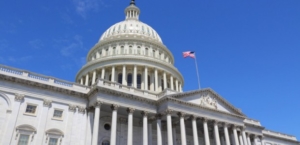Senate Overrides Presidential Veto on Anti-Terrorism Bill

By Debbie Gregory.
In the first successful override of a presidential veto since Obama took office, the House and Senate voted to reject President Obama’s veto of legislation allowing lawsuits against foreign sponsors of terrorism. This was Obama’s 12th veto of his presidency.
S.2040/H.R.3815, known as the Justice Against Sponsors of Terrorism Act, or JASTA, was vetoed because it was thought that the bill would infringe on the president’s ability to conduct foreign policy. The legislation creates an exception for sovereign immunity granted in U.S. courts to foreign governments that are not designated state sponsors of terrorism.
Survivors and families member of the victims of the 9/11 terrorist attacks have longed pushed for the ability to sue Saudi Arabia for damages. They believe the country played a role in the attacks. Fifteen of the 19 Sept. 11 hijackers were Saudi nationals, though Saudi Arabia has formally denied any association.
The House voted 348-77, well above the two-thirds majority needed. The final vote tally in the Senate was 97-1. Minority Leader Harry Reid, D-Nev., cast the lone dissenting vote. Even Obama’s Democratic allies on Capitol Hill voted to override his veto.
Obama stated that although he thinks overriding his veto was a mistake, he understood why Congress voted the way it did.
Congress spent nearly seven years evaluating every aspect of JASTA to carefully refine its text and policies. The resulting legislation ensures that the rights of American citizens are prioritized above Saudi interests, allowing victims to hold foreign governments accountable in U.S. courts for furthering terrorism against Americans.
The measure essentially creates an exception to sovereign immunity, the doctrine that holds one country can’t be sued in another country’s courts. It allows plaintiffs to sue other nations in U.S. federal courts for monetary damages in cases of injury, death or property damage caused by acts of international terrorism in the United States.
The president warned the law could be “devastating” to the U.S. military, diplomatic and intelligence communities.
“The United States relies on principles of immunity to prevent foreign litigants and foreign courts from second-guessing our counter-terrorism operations and other actions that we take every day,” he wrote.
Although the 9/11 commission did not find any proof of Saudi government involvement, the families still want to examine any possible links not yet uncovered. The legislation provides the green light for them to move forward.
Military Connection salutes and proudly serves veterans and service members in the Army, Navy, Air Force, Marines, Coast Guard, Guard and Reserve, and their families.



















